La Cruz Talks About Singing to Other Men in Reggaeton: «There’s a Lot to Be Done»
The pioneer artist speaks about LGBTIQ+ referents, upcoming projects and sends a special message to Anitta
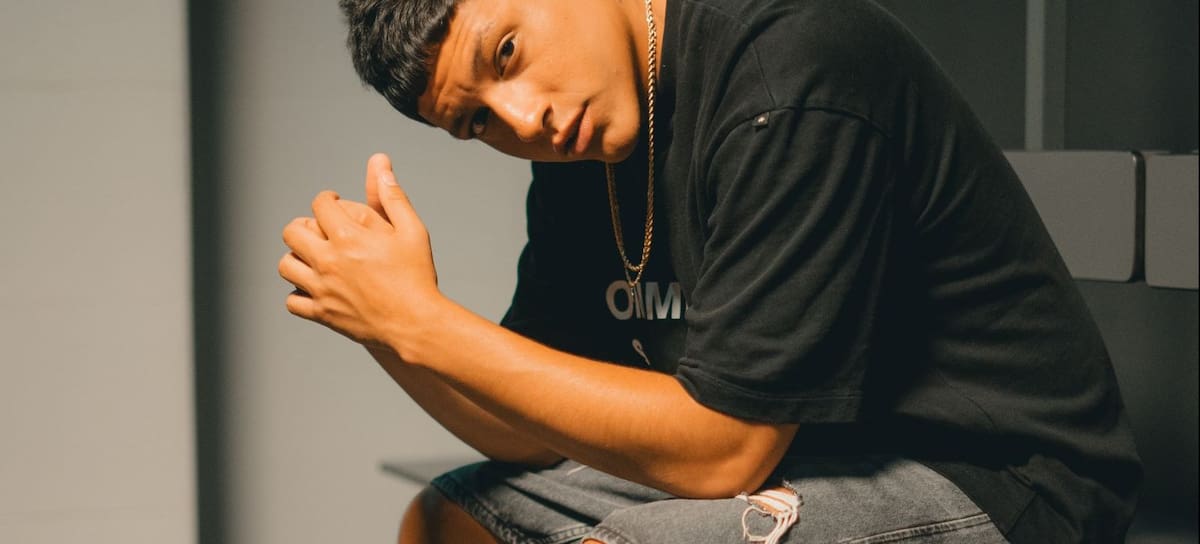
La Cruz / Courtesy of the artist
Alfonso La Cruz (Caracas, Venezuela, 1995) is one of the pioneering artists in the LGBTIQ+ community in the Spanish-speaking urban genre, as demonstrated in his viral and sensual song «Quítate la Ropa.» With other hits like «Fotos,» «Desnudx,» «Nadie Te Va a Querer,» and his groundbreaking debut album Hawaira (2022), this talented artist who rose to fame in Spanish reality show Operación Triunfo 2018 is here to change everything.
Now La Cruz talks to LOS40 about his work, his message, role models, upcoming projects, and which artist he would like to collaborate with. If you want to watch the full interview, press play or keep reading!
La Cruz, «Quítate la ropa» is a huge hit. Tell us about the process of creating this song.
The process of creating the song was super interesting. I started making it in the studio with Reyes, and while we were composing, I was speaking about an experience I had some time ago. It was about a moment in life when you don’t want anything with anyone, or maybe you’re busy with something else and then suddenly someone comes along and changes everything, right? That’s how the lyrics started to take shape. Later on, we focused on the genre; we wanted to make something very similar to «Te Conocí Bailando,» which was one of the successful singles from the album. When I heard everything the producer was giving me, I was fascinated, already imagining all the things I wanted to do in the music video.
How have you noticed the reception from the audience?
Wow, it’s crazy because people are enjoying the song because it’s reggaeton. People relate to the lyrics because they may have experienced something similar at some point. It appeals to all kinds of genders, you know? Girls have contacted me saying they love the song, and even straight guys have messaged me saying the song is great, keep going, etc. So, it’s like, wow, what’s happening is wonderful. But indeed, there’s a significant community that thanks me for telling this story because nobody has told it before. It’s like, well, maybe there are people who have told similar stories, but I have the visibility, and I’m proud to be able to do it and serve as an inspiration for them, you know?
And what does this song mean to you in your career, both personally and professionally?
I believe it marks a before and after compared to all the projects I’ve released so far, mainly because of the connection I’ve had with my community and the fans.
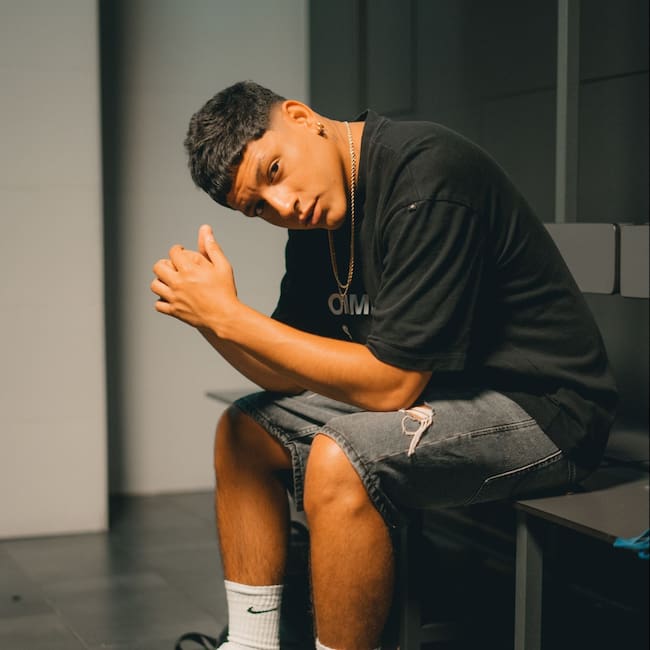
La Cruz / Courtesy of the artist
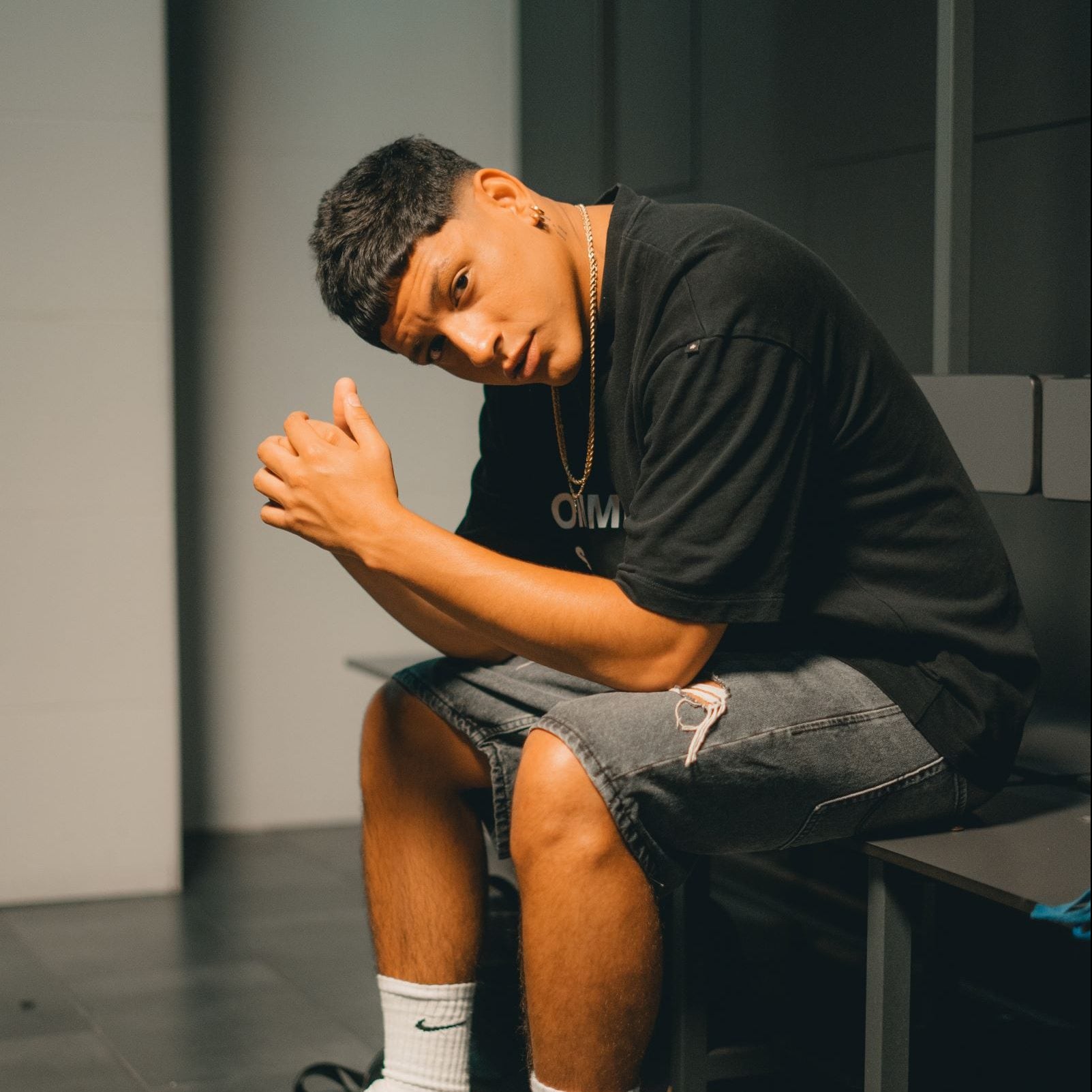
La Cruz / Courtesy of the artist
LGBTQ+ Representation in the Industry
There are more and more artists breaking barriers in the urban genre, like you and others like Villano Antillano. How would you describe the process of becoming one of the pioneering references for the LGTBIQ+ community in reggaeton?
I think I did it without thinking too much, maybe because I’ve been working on my project for quite some time now. When I started writing songs in the studio, it was like, «What am I going to do if everyone around me is heterosexual?» Since most of them are heterosexual. So I thought, «How can I talk about something that happened to me last week?» But I had to filter out the people who supported my idea and those who didn’t. It was like, Okay, I can work with these people. In the end, I’m not going to stop doing what I like, nor am I going to stop telling the stories that happen to me, those that people can truly identify with. I reached this point after working on my project for a year and a half, and suddenly everyone hears what has happened over the year and a half, and it feels as fresh as if it was released yesterday. For me, it’s a privilege. Representation is what I’ve been doing, and I see it as very natural. I think it’s what is needed too, to be able to tell the story without having to point out the obvious, you know? It’s what I live, and it’s 100% natural.
Sometimes I have to say «next» because I’m not going to give up. I am who I am, and that’s it.
What obstacles have you encountered along the way?
There are always obstacles in the music industry, but one of the challenges that took me the most time to overcome was that, basically, when you present the idea for a music video to an audiovisual producer, they may share your vision to a certain extent, but they don’t want their name to be associated with something explicit, you know what I mean? So, sometimes I have to say «next» because I’m not going to give up. I am who I am, and that’s it.
Do you think there’s a lack of LGBTQ+ references in urban music?
Absolutely. There’s still a lot of work to be done but I believe we’re in a good moment, an era where things are changing. It used to be a taboo when a girl sang to a guy, very old, in reggaeton, and now Ivy Queen, for example, was one of the first to break that barrier and earned respect from people. We’ve made progress with girls singing to girls, and they’re gaining respect as it should be. Respect is everything. I think it’s a good moment in the era of urban music where it has become more acceptable for a guy to sing about another guy. Why not? You can still enjoy it at the club. You’ll have a great time. I’ve been dancing to Arcángel’s songs, my favorite artist, all my life.
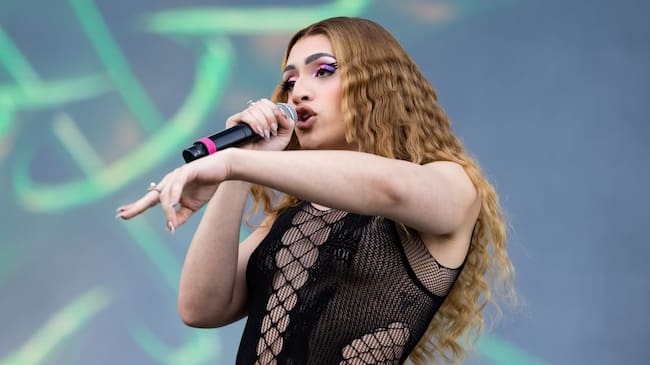
Villano Antillano performs on stage during day 3 of Primavera Sound Madrid 2023. Aldara Zarraoa / WireImage
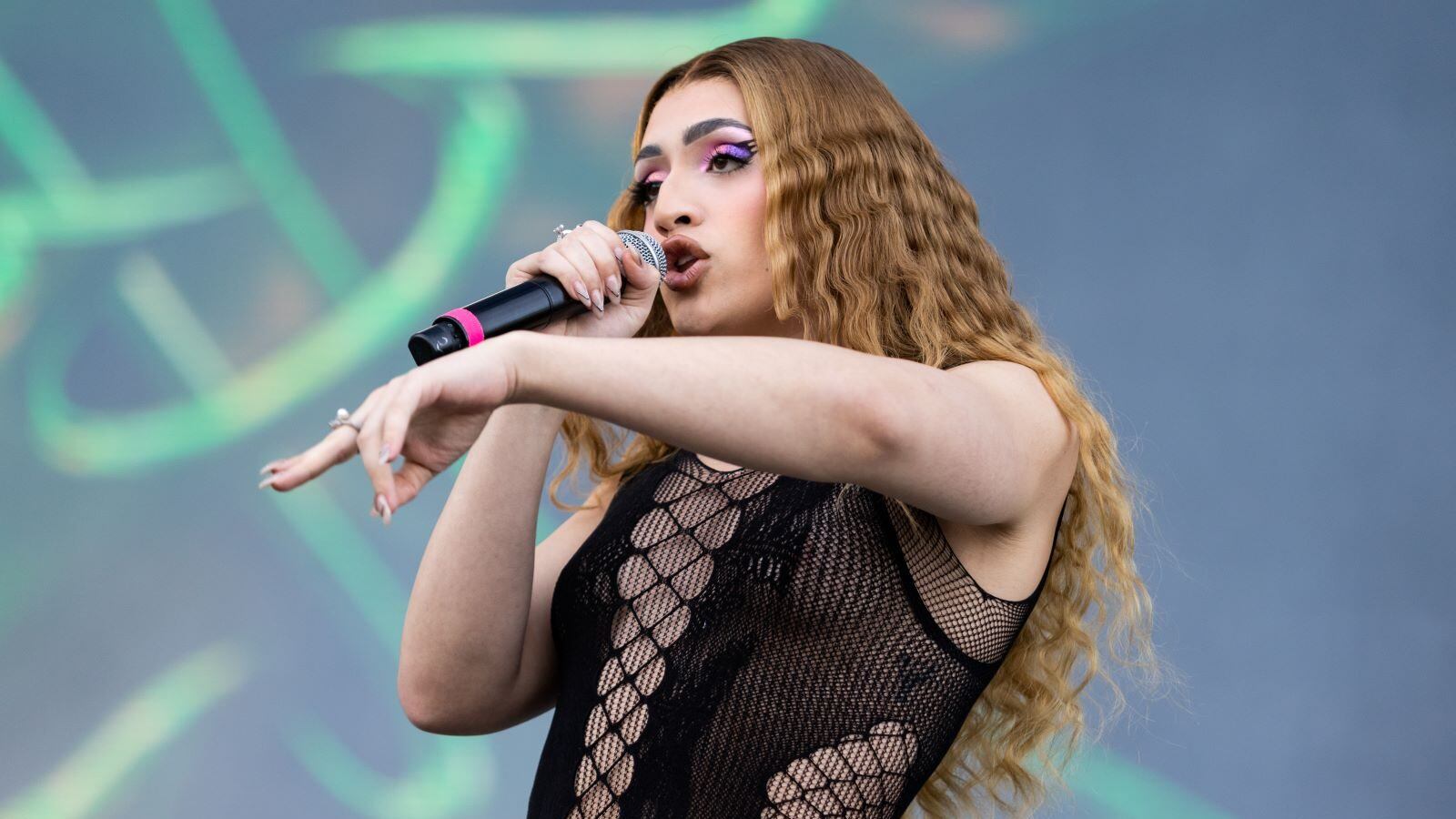
Villano Antillano performs on stage during day 3 of Primavera Sound Madrid 2023. Aldara Zarraoa / WireImage
Can you think of anyone who, like you, is breaking stereotypes in the industry right now?
Villano, I love Villano’s project. I even had the opportunity to talk to her, she’s an incredible person. Also, Young Miko and Petazeta. There are plenty of people working on this with their merits, you know. We don’t want this to be seen as we are making drama of this situation. No, no, no: we go to the studio, have a great time, and create great songs because that’s our job. But the difference is that maybe some people can relate to us and not to other artists. We need that to be valued in the industry.
If you want to make music that reflects your identity and someone from a major label tells you that you can’t make music for boys because you are a boy, and you don’t do it, then you are wasting your time
What advice would you give to other LGBTQ+ artists who are considering expressing themselves through music?
I believe I can’t give advice because everyone’s journey is different. Respect for individual processes is crucial. However, at an industry level, if you want to make music that reflects your identity and someone from a major label tells you that you can’t make music for boys because you are a boy and you don’t do it, then you are wasting your time in the moment we live. The more people who do it, the more it becomes normalized for those who still don’t see it as normal. Some people in the music industry still think that girls are the ones who pay for tickets and buy records, but it doesn’t make sense, it doesn’t. I don’t see the logic in their reasoning.
References & Dream Collab
What inspires you when writing your songs?
Well, when I compose, I usually try to think about things I’ve experienced at some point so that I can express my emotions in some way. I believe music is about emotions, being able to sing something sad, something happy, or whatever it may be. I always try to draw from that, you know? Although sometimes, when I’m at songwriting camps with other composers, and they’re writing for girls, and I’m writing for boys, and it’s like, all right, let’s do something, let’s have a meeting before the camp. Let’s clarify things, right? Yes, but honestly, there’s never a problem with that because I write for my gender, and they write for theirs, and then we adapt. In the end, art is free, right?
Which artist, both within and outside the urban music industry, would you like to collaborate with?
Wow. I would love to collaborate with Anitta. I say it publicly, Anitta. I love her music, and I’ve admired her for a long time. Our fans are campaigning on social media for a collaboration between us, and they even created a simulated single using artificial intelligence. When I heard it, I was thrilled. I really loved it, loved it.
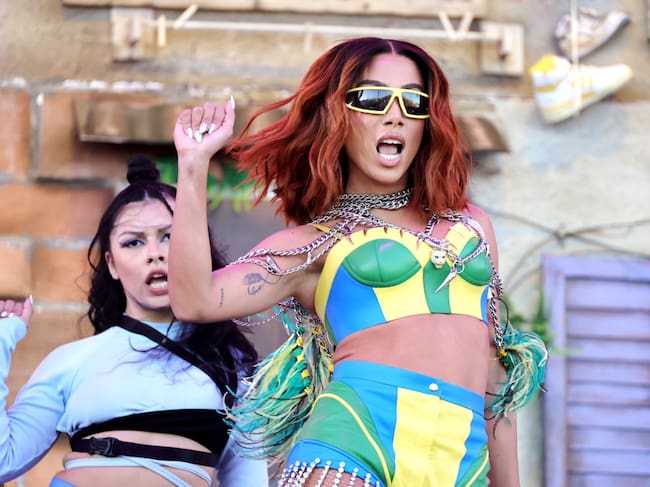
Anitta performs onstage at the Coachella Stage in 2022. Kevin Winter / Getty Images for Coachella / Kevin Winter (WordPress)

Anitta performs onstage at the Coachella Stage in 2022. Kevin Winter / Getty Images for Coachella / Kevin Winter (WordPress)
And which artist, within or outside the urban genre, would you like to collaborate with soon?
Of course, when I go to the studio, I always try to create things that come from within me, I avoid imitating my favorite artists because that could lead to plagiarism. The music industry currently has many artists who sound alike, and I want to create something unique and organic. I listen to a wide range of music, like Beyoncé and Joji, which are quite different from urban or reggaeton. Even though I consume reggaeton a lot and love it, I draw inspiration from different artists when creating my music. Also, at a career level, like some artists who conveyed their message, I believe that nowadays, young people consume a lot of urban music, but urban music doesn’t always have a meaningful message. So, it’s like we need to take a little step in that direction and be able to give thematic content to a project. For example, I’m a big fan of Rosalía. She always works with different concepts, and everything is well thought-out and authentic. It’s not something fake; it’s all very real. I like working from that approach, you know? To show something to people that can contribute something valuable. That’s it.
What has working on your first album, Hawaira, meant to you, both personally and professionally? Who was La Cruz before the album, and who is La Cruz after the album?
Wow, there’s a big difference, a huge difference. I remember I started working on the album shortly before the pandemic without knowing it would become an album. When I saw I had many songs, I told the producer that I needed to release them, as a gift to myself, and get them out of the studio. And he told me, ok, let’s do it bro. Let’s make it an album or EP, depending on the number of songs I wanted to include. And we released everything. People asked for music on social media, but in fact, I did it more as a need of closing this chapter with all these songs and open a new chapter in my life. That’s why I say that «Quítate la ropa» marked a turning point that came after the album. After listening to all the songs, I decided to release it on my birthday, November 11, my favorite number. And that’s it. Whatever happens, let it happen, I said. And of course, the album is released, and you start thinking about everything you’ve worked on, and you say, «wow, it’s really beautiful to be able to enter the studio, to create, you know? To express something in each song.
Upcoming Projects
Is there new music coming?
Yes, wow, this year I’m planning new singles and collaborations that I can’t reveal at the moment. But there are some things being discussed that are super, super cool, and if they come to fruition, well, people are going to go crazy, seriously. I believe that this year, at least this year, and for 2024, I’m preparing the album of my life. I’m really excited; it’s like my second baby.
And will there be concerts too?
Yes, of course, I’ll be heading to Latin America in September, and I’ll be performing in Venezuela, Costa Rica, Mexico, and Puerto Rico. Then I’ll be back for the Grammys, as I have an invitation from Spotify. After that, I’ll be going to the United States in December.
Ana Rojas
Periodista en LOS40, coordinando LOS40 USA y colaborando también en El País. Cubro temas de música,...
